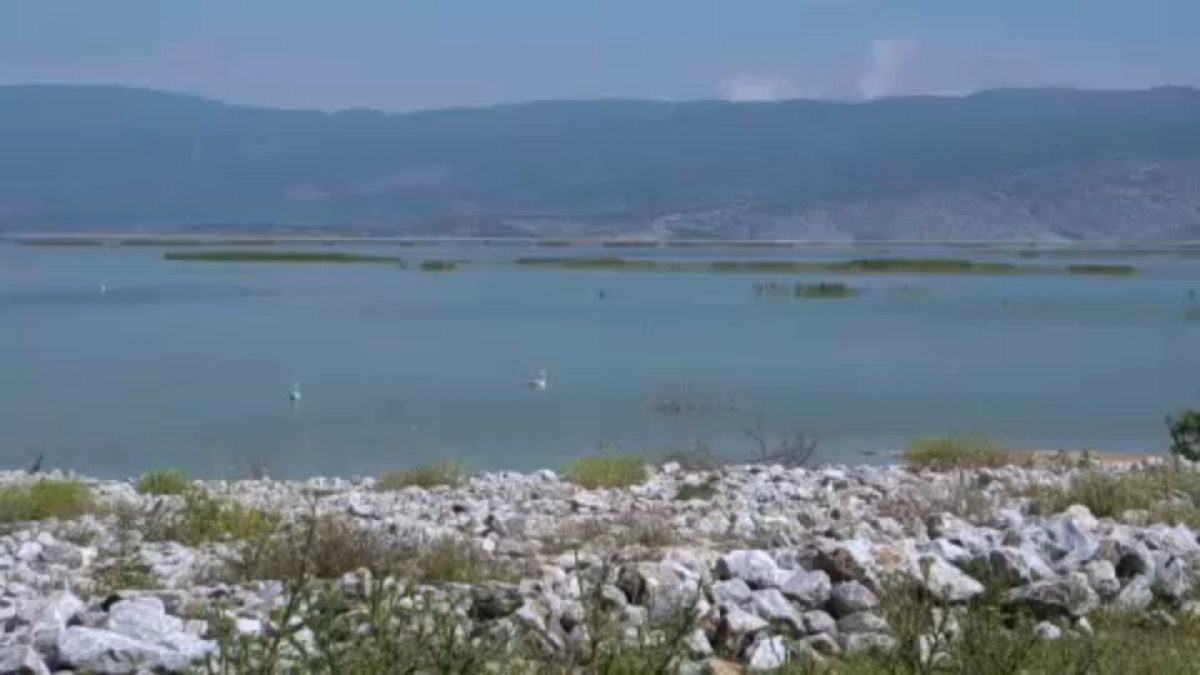The environmental restoration of Lake Karla in Greece's Thessaly plain is recreating an ancient ecosystem, and reviving wildlife and local communities
Lake Karla, at the north-eastern part of the plain of Thessaly in central Greece, is where history is lost in the depths of prehistoric times.
Located at the foothills of Mavrovouni and north Pelion, Lake Karla was one of the largest in Greece until it was drained, a process that was completed in 1962. Its surface stretched to as far as 19 hectares and it had a depth of 6 meters.
Lake Karla was known in antiquity by the name Voivis and has many references in Greek mythology, as well as being mentioned by ancient Greek lyric poets, including Homer and Pindar.
The small lakeside communities all around it had cohabited together for centuries, in a way that had changed little with the passing of the centuries.
Today, a great effort is underway to recreate the lake ecosystem so as to revive the ancient lake once more, with work proceeding satisfactorily and the restoration efforts positively impacting its fauna.
"Nature has rewarded us as we have recorded about 180 different species of ducks and birds, and 14 different species of fish. S we see that one of the primary aims of the Lake Karla project, which was the ecological restoration of the area, has been achieved," said Pantelis Sideropoulos, head of the Karla Lake management organisation, which aims to protect the region.
The project is literally breath of fresh air for local farmers and residents alike, with life in the villages surrounding the lake changing for the better.
"For us it's also a little bit emotional because we grew up with the photos of our grandfathers on Lake Karla. And on the professional side, there is a correct exploitation of the water. This is basic. We are becoming even more competitive in the market," one local resident said.
Already a significant area of agricultural land in nearby villages gets water from the lake, saving thousands of euros each year.
"Of course it will have an effect, and this will be positive towards the European Union, because it's not just the lake project, but other things such as farmers returning and the subsidies we get," said another local.
For the older generation, memories are coming alive again, with nostalgia feeding hopes that better times will return.
"If they say tomorrow that it (fishing) is allowed in Karla, the first to go there will be me. I have a boat, I have nets. It has lots of fish and big fish," one elderly local man said.
"I will go to vote (in Euro elections) because I believe that the European Union helps, that's what I believe," another man said, adding that he has already decided how he will vote.
Lake Karla was known in antiquity with the name Voivis and has many references in Greek mythology, while it is also mentioned by ancient Greek lyric poets, including Homer and Pindar.
In the medieval period, the lake changed its name and from Voivis became Karla, while the local population also called it Valtos, which means swamp in Greek.
In the prehistoric period, the water level of the lake fluctuated wildly as a result of the various sediment deposits, which by the 20th century had reached 40-50 meters, when the government decided to partially drain the lake and then build a reservoir.
The history of Lake Karla reveals how the links between the natural environment and the local communities have come apart.The lake was once one of the best-known wetlands in the Mediterranean, with a high degree of biodiversity and a distinct local culture, which was particularly pronounced within the fishing communities of the region
The prefecture of Thessaly, which was responsible for the Lake Karla project, won an award for the best environmental project in the Balkans.
Prefect Costas Agorastos believes that the recreation of Lake Karla is the most significant project during his term of office and he hopes it will be extended further.
"If it wasn't for the European Union, this project wouldn't have happened. It's a project of productive revolution, because it changed the lives of people here. People see it as a gift from God. It's the biggest environmental project in south eastern Europe," he said
Lake Karla and its surroundings are designated as an Important Bird Area and a NATURA 2000 site. Ducks and birds – including pelicans and flamingos – love the lake, while the mountain of Mavrovouni attracts chiefly birds of prey. Cormorant, coot, and mallard duck are just some of the types of waterfowl living in Lake Karla, which has developed into a very important wetland that’s home to many types of birds.
NGOs have undertaken to inform professionals and local residents alike in order to ensure that the lake's biodiversity is protected.
